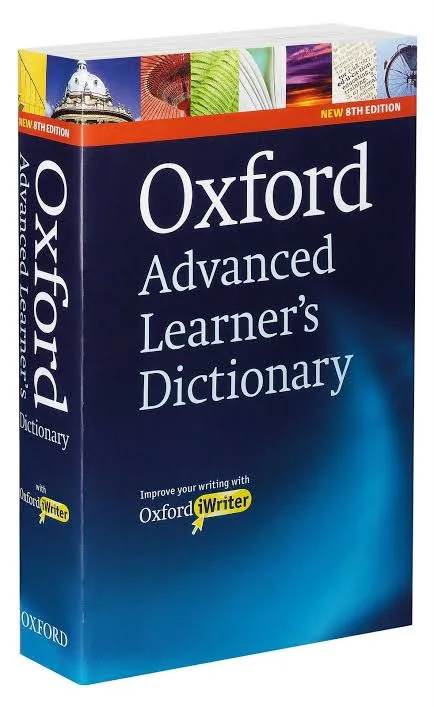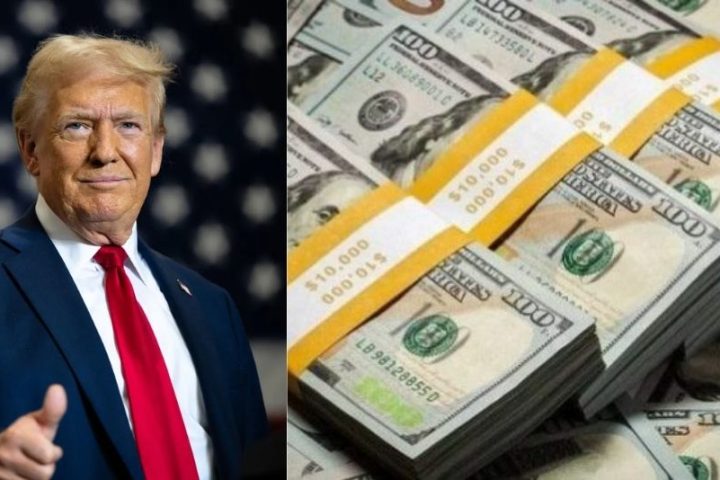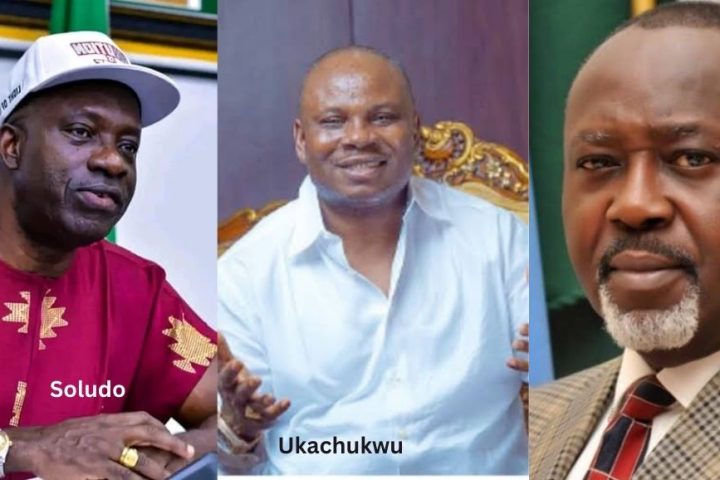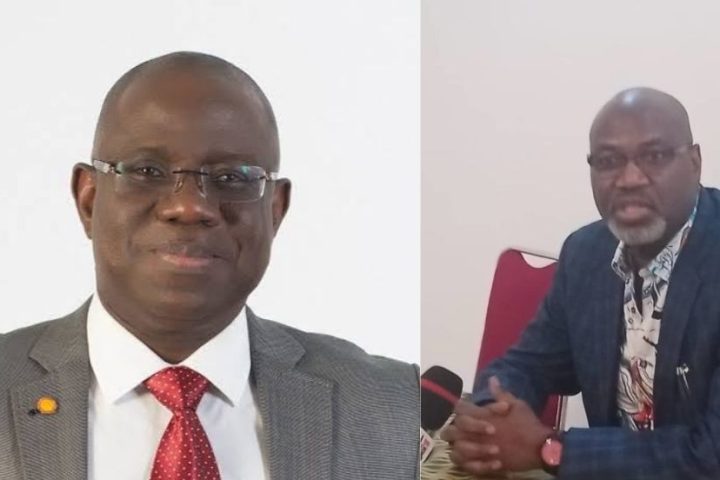Nigerian English consultant, Kingsley Ugwuanyi, the other day announced the addition of a number of Nigerian terms to the Oxford Dictionary, expressing his pride in drafting the entries and providing their pronunciations. For many Nigerians, this is a source of pride.
Clearly, Nigeria’s rich cultural heritage is woven into the fabric of global English. The recent additions of Nigerian words to the Oxford English Dictionary (OED) highlight this influence. However, this inclusion, in a way, portrays negative stereotypes – or realities – associated with some of the words, overshadowing the positive aspects of Nigeria’s identity – if any. It is therefore important to examine the types of words being included from a different perspective.
Notable Additions to the Dictionary
Among the newly included words are “419,” which refers to fraud, and “abi,” a tag question implying agreement or confirmation. “Adire” denotes a traditional Yoruba cloth, while “agbero” describes a tout typically found at bus stops or car parks. The term “area boy” refers to a young man involved in street culture, often associated with touting.
Join our WhatsApp ChannelThe dictionary also encompasses political terms such as “cross-carpet,” meaning to switch political allegiance, and “cross-carpeting,” the act of changing political parties. Culinary terms like “eba,” a starchy side dish made from cassava. “Suya,” spicy meat skewers popular in Nigeria, highlight the country’s rich food culture. Additionally, “gele” refers to a traditional head wrap worn by women.
READ ALSO: Nigeria Receives $52.88m Diezani Alison-Madueke’s Loot From US
Other entries include “jand,” a colloquial term for the UK or leaving for the UK; “japa,” which means to flee or emigrate for better opportunities suggest more of disillusion with Nigeria. “Naija,” an informal term for Nigeria itself, smacks of derogation of the country, with the Nigerian government at a time frowning at the use of the term. Terms like “yahoo boy,” describing a young man involved in internet fraud, and “yarn dust,” meaning to exaggerate or tell tall tales, reflect everyday language and experiences.
The Inclusions are Reflective of Natural Headline Words about Nigeria’s Jaga Jaga
It is evident that most of these inclusions reflect the complex realities faced by many young Nigerians. These terms are not merely linguistic additions; they embody the struggles and survival tactics of a generation grappling with economic challenges and societal pressures.
For instance, “japa” signifies the desire to flee Nigeria for better opportunities abroad, while “419” denotes a form of fraud that has unfortunately become synonymous with desperation. Evidently, the dictionary’s characterisation of these terms as distinctly Nigerian highlights a cultural narrative where many feel compelled to leave their homeland in search of stability and success.
Also, words like “agbero” and “yahoo” illustrate the informal economies that have emerged as young individuals seek ways to survive amidst limited prospects.
This then presents a dual image of Nigeria: on one hand, it showcases resilience and creativity in language; on the other, it underscores a troubling reality where young people perceive foreign lands as more promising than their own.
While words such as “Edo,” “Kanuri,” and “gele” reflect Nigeria’s rich cultural heritage and linguistic diversity, the dictionary’s focus on slang terms associated with desperation paints a more troubling picture.
It is also crucial to point out that words like “419” and “Yahoo” are not rooted in Nigeria’s ethnic mother tongues; rather, they are street vernaculars that encapsulate the struggles faced by many young Nigerians in a challenging economic landscape. The characterisation of “419” in the dictionary as a term specifically linked to Nigerian youth suggests a stereotype that associates an entire generation with fraud and deceit.
This portrayal can reinforce negative perceptions of Nigeria on the global stage, overshadowing the country’s rich cultural contributions and linguistic variety as well as perpetuating a narrative that overlooks the resilience and creativity of Nigerians who strive for better life despite systemic challenges.
A History of Nigerian Words Entering the Oxford English Dictionary
The history of Nigerian words entering the Oxford English Dictionary (OED) can be traced over the years. In January 2020, the OED added 29 Nigerian words, marking a notable milestone. This update included terms such as “agric,” “okada,” “danfo,” and “mama put,” which encapsulate various aspects of Nigerian daily life. These latest additions join at least 57 other words of Nigerian English origin that are already present in the dictionary.
Troubling Perceptions Surrounding Inclusion
The most troubling is that foreign headlines regarding the inclusion of Nigerian words in the OED often reflect negative perceptions, focusing on implications rather than celebrating Nigeria’s rich cultural heritage.
A notable example is the BBC article titled “War of words as Nigerian English recognised by Oxford English Dictionary,” published on March 1, 2020. This article discusses mixed reactions to the inclusion, highlighting criticism from historian Timi Soleye, who argues that terms like “sef” and “chop-chop” represent a “debasement of English grammar.”
Such headlines underscore the tension between traditional English standards and the evolving nature of Nigerian English, suggesting that these inclusions may reinforce stereotypes about language use in Nigeria. The portrayal of negative headlines is an evidence of how foreigners often perceive Nigeria through the lens of street life and socio-economic challenges.
Could there have been anything in Nigeria to merit Global Linguistic Influence?
Although such terms portray Nigeria negatively, they also serve as a testament to the country’s rich linguistic heritage and the vibrancy of its culture.
Despite these concerns, Nigeria has much to offer that merits influencing global language. The country is endowed with abundant natural resources and a vibrant culture. The influence of Nigerian expressions on global language not only showcases linguistic creativity but also highlights a broader cultural impact. As Nigerian words gain international recognition, they also need to challenge stereotypes and promote a more nuanced understanding of Nigeria’s identity.
This evolution in language fosters greater appreciation for the diverse ways English is used worldwide, ultimately enriching the global linguistic landscape.
Additionally, Nigeria’s contributions to global language through unique expressions and adaptations of English signify a belief in one’s culture and identity, rather than solely relying on foreign languages for daily communication. This highlights the importance of recognising linguistic diversity and celebrating cultural heritage in an interconnected world.
Enhancing the representation of Nigerian culture in global dictionaries
It is crucial to prioritise traditional terms over street language. Lexicographers should incorporate words from Nigeria’s diverse ethnic languages of more than 500 that reflect cultural practices, traditions, and values. For example, terms related to traditional foods and festivals can provide a richer understanding of Nigeria’s heritage. Engaging local voices is vital; collaboration with Nigerian linguists ensures that word selection is respectful and representative of local contexts.
Encouraging public participation will allow Nigerians to contribute their expressions, fostering ownership of their language. Also, promoting positive narratives about Nigeria’s achievements in literature and music can counter negative associations with certain slang terms. Therefore, by focusing on the richness of Nigerian English as a legitimate form of expression, stakeholders can positively influence global perceptions, celebrating Nigeria’s vibrant identity in nuanced ways.
Well, words don’t enter the Oxford Dictionary because they are Nigerian words. The words need to pass through critical stages of use to gain popularity and trail into the dictionary. Unfortunately, the ones that pass though the stages of popularity in Nigeria are the negative ones, which are also the headline words predominant in foreign media that portray Nigeria negatively. Whose fault is it?
Dr Mbamalu is a Jefferson Fellow, member of the Nigerian Guild of Editors (NGE), communications/Media Consultant and Publisher, Prime Business Africa
Email: marcelmbamalu2@gmail.com
+2348094000017
Dr. Marcel Mbamalu is a communication scholar, journalist and entrepreneur. He holds a Ph.D in Mass Communication from the University of Nigeria, Nsukka and is the Chief Executive Officer Newstide Publications, the publishers of Prime Business Africa.
A seasoned journalist, he horned his journalism skills at The Guardian Newspaper, rising to the position of News Editor at the flagship of the Nigerian press. He has garnered multidisciplinary experience in marketing communication, public relations and media research, helping clients to deliver bespoke campaigns within Nigeria and across Africa.
He has built an expansive network in the media and has served as a media trainer for World Health Organisation (WHO) at various times in Northeast Nigeria. He has attended numerous media trainings, including the Bloomberg Financial Journalism Training and Reuters/AfDB training on Effective Coverage of Infrastructural Development of Africa.
A versatile media expert, he won the Jefferson Fellowship in 2023 as the sole Africa representative on the program. Dr Mbamalu was part of a global media team that covered the 2020 United State’s Presidential election. As Africa's sole representative in the 2023 Jefferson Fellowships, Dr Mbamalu was selected to tour the United States and Asia (Japan and Hong Kong) as part of a 12-man global team of journalists on a travel grant to report on inclusion, income gaps and migration issues between the US and Asia.

















